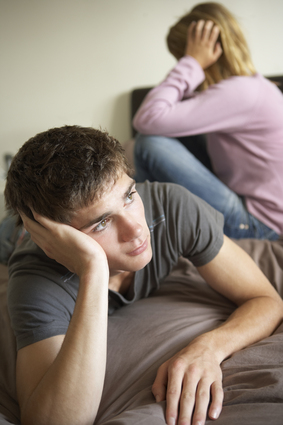What is domestic abuse?
By Kerry Hudson
There has recently been discussion in the media about domestic abuse and whether non-violent domestic situations are considered abuse. Non violent domestic abuse is behaviour tactics such as
-
destructive criticism

- humiliation or degradation
- telling lies about you to people
- isolating your friends and family from you
- constant checking up on you or stalking
- using pressure tactics or blackmail
One woman suffering from this type of abuse was told by both Police and Woman's Aid that her case was the worst form of domestic abuse they'd ever seen.
A person who has bruises or scars of violence is indeed a victim in need of support and justice, but for these victims, it is not just the scars that show on the outside that hurt the most, and what about women (and men) who are not subject to violence, but are suffering emotional and psychological abuse in their own homes? And will these, like fractures and bruises, eventually heal?
Emotional abuse
According to Women's Aid most domestic violence – which is a rocketing one in four at some point in a woman's lifetime – will include some form of emotional abuse, and often have more devastating and longer term effects on her emotional and mental health. However, because many of the behaviour tactics listed above are not seen as crimes by the justice system it is much more difficult for these victims to get protection or even be taken seriously. And even if they do make that brave decision to break free, are they ever free? Can they recover from months, years or even decades of mental manipulation and emotional abuse?
Real-life accounts
Marion, a victim of domestic abuse and founder of a successful online support group accessed by Mumsnet says “Our chances of recovery are massively improved by removing or severely limiting contact with the abuser, and instead spending our time with happy, emotionally healthy people... that married couple who have always treated each other with consideration and respect, that family who manage to negotiate the daily stresses with good grace, and of course, your friends who you can (hopefully) trust to support you, believe in you and give you the comfort and reassurance to keep moving forward with your life.”
And Izzy, also a victim of domestic abuse and currently writing memoirs about her experiences says “The destruction of trust is something that is very hard to get over. It attacks your basic sense of self so it is very important to work at rebuilding yourself, checking in with others who have been in a similar situation, obtaining support from those that understand. Accept that it takes a very long time to learn to trust and not to beat ourselves up mentally for what went on. We need to be very conscious of who we are and what makes us happy/able to cope/confident and what triggers our fear again”
Love after domestic abuse
Abusive relationships can undoubtedly have a continual effect on future relationships. Someone who has been abused by the person they loved and needed the most will often tell themselves they will never be in another relationship again. Their self-esteem has been crushed, their confidence in the opposite sex distorted and emotional or mental health patterns that the trauma left behind clouding the ability to be move on, such as panic attacks, insomnia, post traumatic stress disorder (PTSD) or obsessive compulsive disorder (OCD). These may make it seem impossible to see romance in the future. But is there hope for future relationships be it dating for fun or something more secure and fulfilling?
Marion says “Yes you can! You need to leave a decent period to reflect and learn from your experience. Recognise what has happened to you. You have already learnt to spot the warning signs of a potentially abusive partner. Most of all, work on your self- esteem. Even when you consider yourself ready for a relationship, ask yourself if you are happy on your own. If not, you still have work on yourself to do and may be rushing into things.”
Many people who are suffering from domestic abuse have been manipulated by their abuser into thinking that they simply cannot cope on their own, no matter how strong they once were. However frightening it may seem at the time, it is indeed a very refreshing and liberating experience being single again.
Cath, another victim of domestic abuse and novice blogger says “It becomes much easier to manage your own emotions when they are the only ones you are responsible for. If it seems impossible to imagine being on your own, try and look at your current situation as if it was happening to your best friend,”
You are not alone
It is important to recognise that you are not alone, any form of domestic abuse you have lived with and any emotional scars you still nurse have been experienced by others who have rebuilt their identity, esteem and confidence with support be it from friends or family, domestic abuse forums or agencies, or post trauma based counselling, who then were able to look forward to romance, love, and being mentally healthy again.
You can learn more about womenasaid by visiting www.womansaid.org.uk





